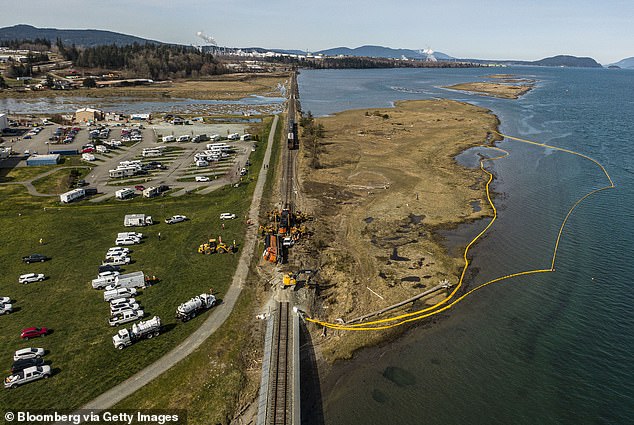A national railroad company must pay a Native American tribe nearly $400 million for “invading” their land.
U.S. District Judge Robert Lasnik ordered BNSF Railway to hand over the staggering sum of cash on Monday after finding that the company intentionally trespassed on the Swinomish Tribe’s reservation north of Seattle while repeatedly running 100-car trains. that transported crude oil throughout the territory.
In doing so, the railroad deliberately violated a 1991 easement with the tribe that allows trains to carry no more than 25 cars per day, Lasnik initially ruled last year.
A trial was then held earlier this month to determine how much profit BNSF made through the invasion and how much it should pay.
BNSF Railway was ordered Monday to disburse nearly $400 million to the Swinomish Tribe.
BNSF’s predecessor, the Seattle Northern Railroad Company, illegally built the railroad through the Swinomish reservation in 1889, over the tribe’s objection. according to the Seattle Times.
It was used regularly for more than a decade, until the federal government granted the Swinomish Tribe an easement in 1991 that limited rail traffic to one 25-car train per day in each direction.
It also required BNSF to inform the tribe of the “nature and identity of all freight” transported through the reservation, and said the tribe would not arbitrarily deny permission to increase the number of trains or railcars.
But in 2015, the tribe sued BNSF, alleging that it used six 100-car trains each week (four times the permitted number) so it could ship crude oil from and around the Bakken Formation in North Dakota to a nearby refinery.
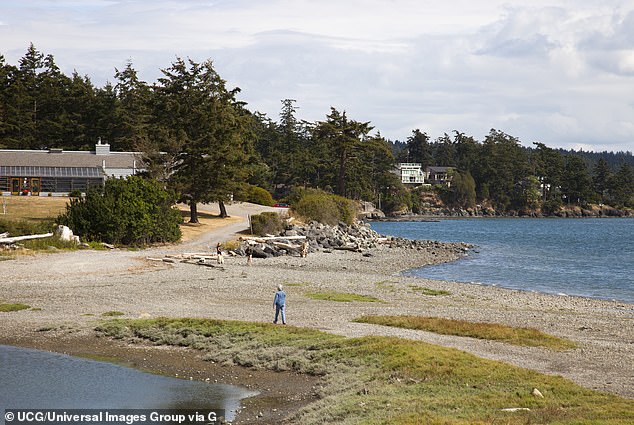
BNSF’s predecessor, the Seattle Northern Railroad Company, illegally built the railroad through the Swinomish Reservation in 1889.
The route crosses sensitive marine ecosystems along the coast, over water that connects to the Salish Sea, where the tribe has treaty-protected fishing rights.
To make matters worse, Bakken Formation crude oil ignites more easily than other crude oils.
After train cars carrying Bakken crude oil exploded in Alabama, North Dakota and Quebec, a federal agency warned in 2014 that the oil has a higher degree of volatility than other crude oils in the US.
In court, the tribe argued that they first learned that a nearby refinery would begin receiving trains of crude oil through a 2011 Skagit County planning document.
But it wasn’t until the following year that the tribe received information from BNSF about the use of the runway on the reservation, according to court documents.
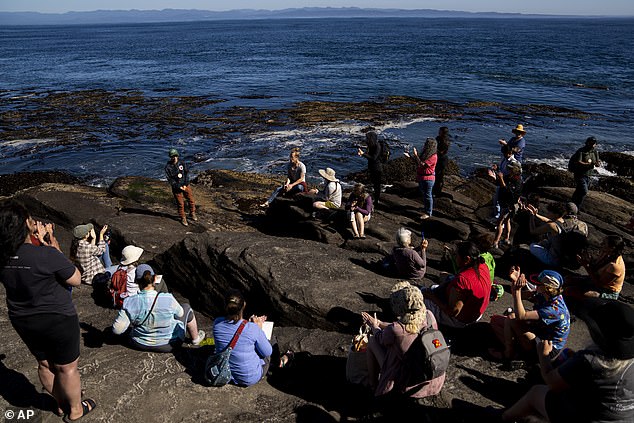
A route BNSF used to transport crude oil crossed sensitive waterways where the tribe has treaty-protected fishing rights (pictured: Visitors watch a community environmental health analyst from the Swinomish Indian Tribal Community give a presentation at the pools Salt Creek tidal wave during Tribal Conference 2023 Olympic Peninsula Climate Camp)
At that time, the tribe and BNSF discussed modifying the agreement, but ‘at no time did the tribe approve BNSF’s unilateral decision to transport unit trains across the Reservation, agree to increase train or car limitations, or waive its contractual right of approval. ‘ Lasnik said in his decision last year.
‘BNSF failed to inform the Tribe of the nature of freight crossing the Reservation and unilaterally increased the number of trains and railcars without the Tribe’s written agreement, thereby violating the conditions imposed on BNSF’s permit to enter the property.’ He ruled.
Trains then continued traveling through the reservation from September 2012 to May 2021, the Seattle Times reports.
Last year, two BNSF engines also derailed on land in Swinomish, spilling approximately 3,100 gallons of diesel fuel near Padilla Bay.
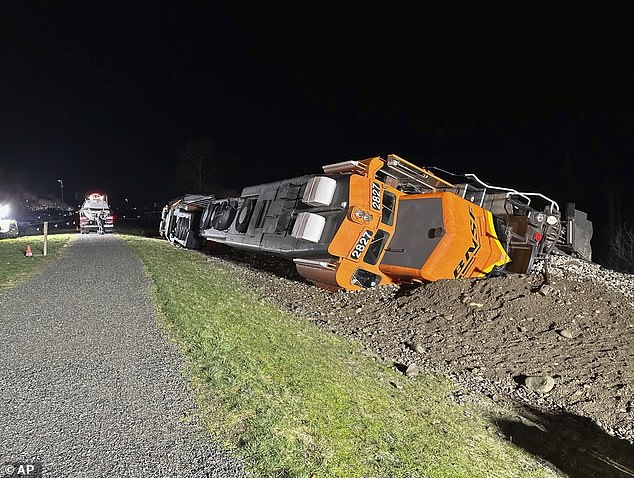
The BNSF train derailed on the Swinomish Tribal Reservation near Anacortes on March 16, 2023.
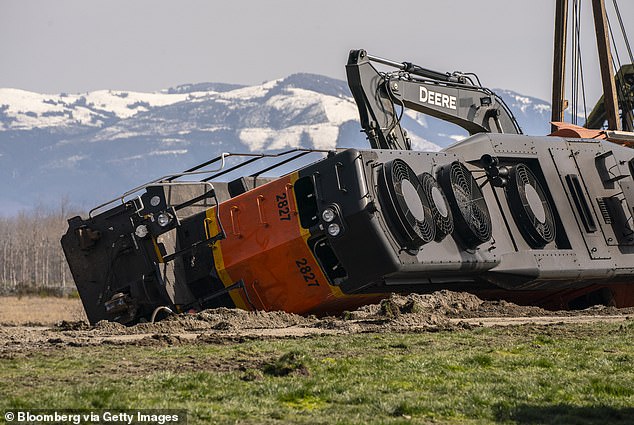
It is estimated that the train spilled 3,100 gallons of diesel fuel near Padilla Bay.
This month’s four-day test was designed to determine how much of the ill-gotten gains BNSF should have to return.
In the end, Lasnik estimated that figure at $362 million and added $32 million in after-tax profits, such as investment income, for a total of more than $394 million.
In reality, the judge wrote, BNSF made far more than $32 million in after-tax profits, but adding it all together would have added hundreds of millions more to what was already a large judgment against the railroad.
DailyMail.com has contacted the Swinomish tribe for comment. BNSF declined to comment.

